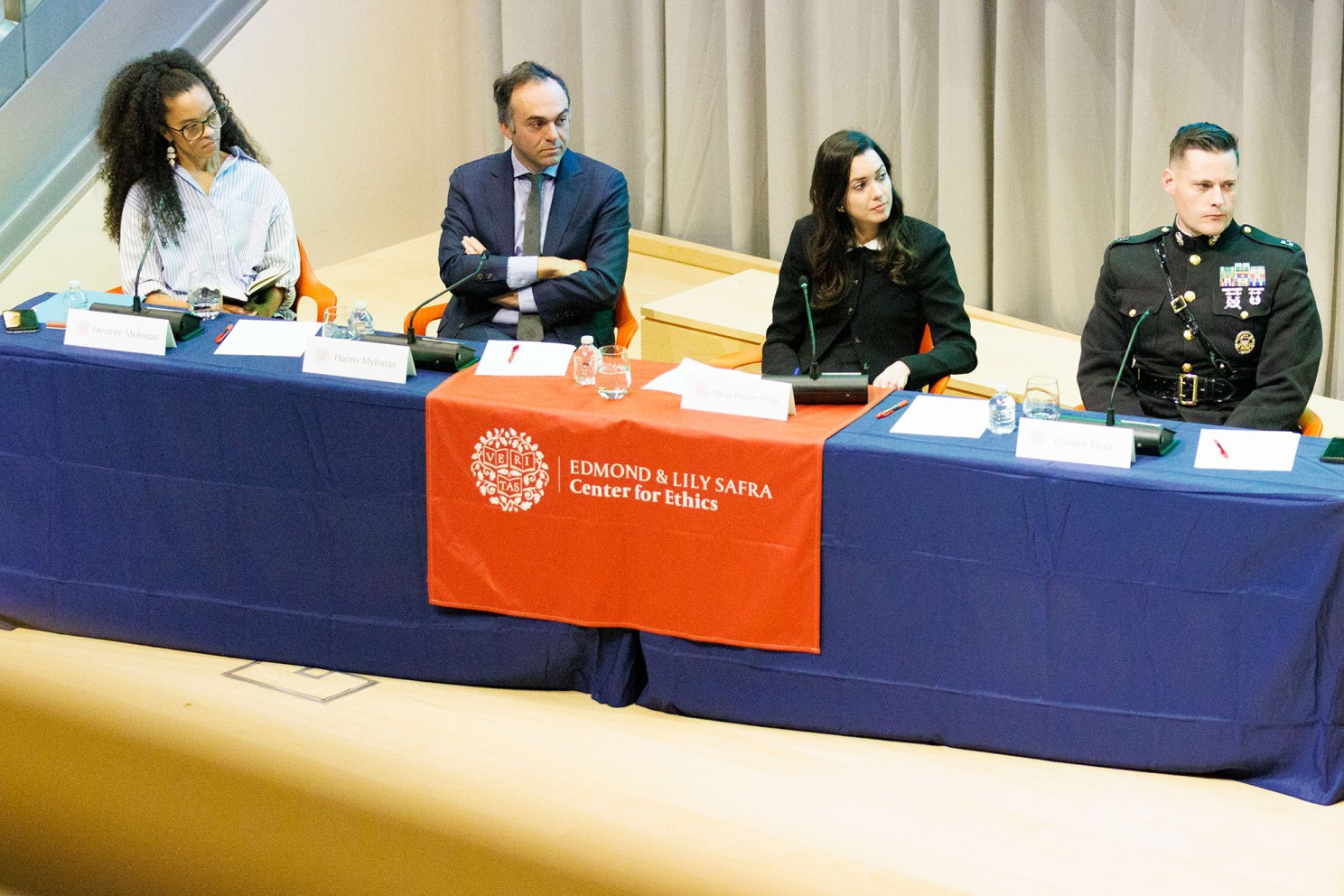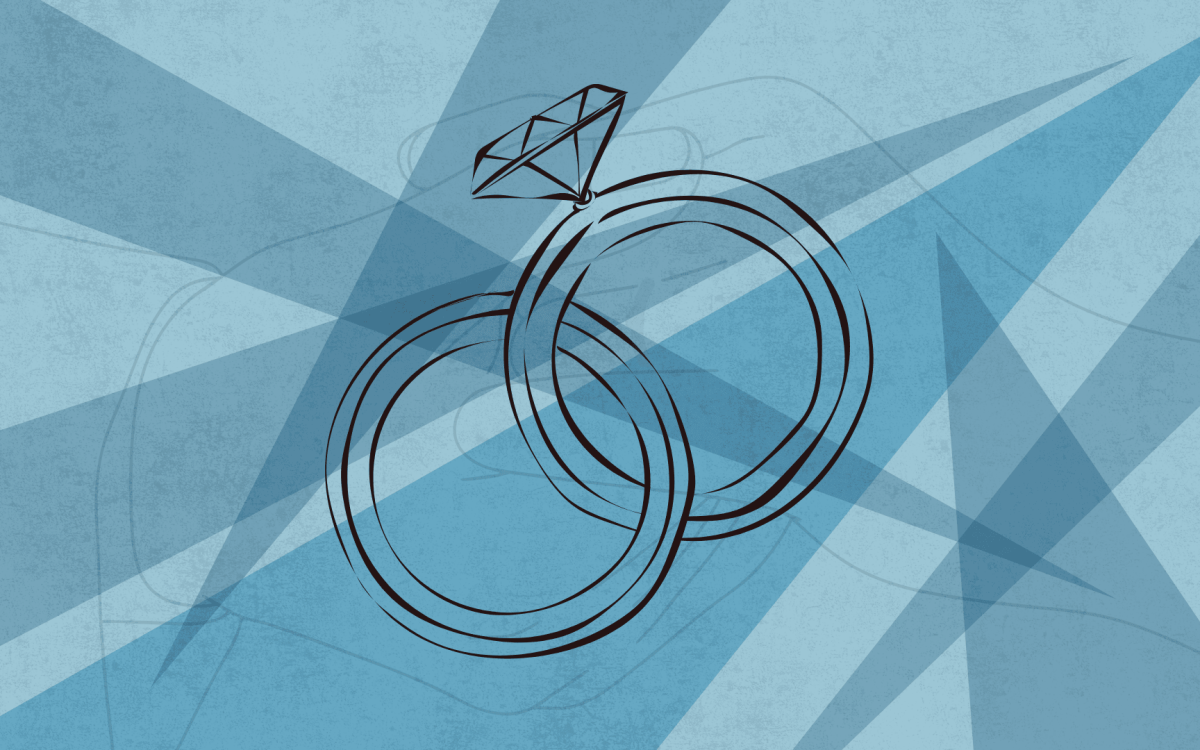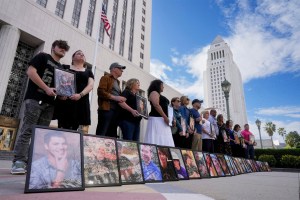
Desireé Melonas (from left), Harris Mylonas, Silvia Foster-Frau, and Connor Flynn.
Veasey Conway/Harvard Staff Photographer
What unites Americans?
Civil Discourse panelists debate how to strengthen national ties
What ties a nation together?
The question, simple but provocative, launched a conversation last week hosted by the Edmond & Lily Safra Center for Ethics. Its Civil Discourse initiative invites academics, journalists, and public servants to model thoughtful disagreement on politically charged questions. Past installments in the series have centered on abortion and the ethics of extreme wealth.
This year’s topic couldn’t be more urgent, said Ethics Center Director Eric Beerbohm, the Alfred and Rebecca Lin Professor of Government. “As someone who works in democratic theory, I’ve been struck by how quickly discussions of national identity have veered away from civic ideals — sometimes toward rhetoric of ancestry, exclusion.”
Moderator Nien-hê Hsieh, the Kim B. Clark Professor of Business Administration at Harvard Business School, led the event’s search for more productive national ties. Are citizens and residents bound by aspirational values? Shared geography? Rallying against a common threat?
One theory came from panelist Harris Mylonas, an associate professor of political science at George Washington University.
“The way you get your independence, the way your founding moment operates … determines what unites your people,” he argued. Mylonas went on to compare the origin stories of the U.S. and his birth country. The foundations of modern Greece, a majority Christian society, centers on its long struggle against the Ottoman Empire, where the official religion was Islam, he said. The fissure came down to faith.
“But if you read the Declaration of Independence, the claim was that the law was not applied the same way in the colonies as it was in the [British] mainland,” Mylonas said. “The fight was over the enforcement of law.”
This has served to attract people from other parts of the world who hold the law in high regard, he said. “Many people who come from Kenya, from Greece, we come because in our country the law is not respected.”
“Oftentimes, it’s about stripping back language that clearly triggers reactions in one camp or another. When you really clear that out and talk to people, it’s amazing how much people have in common.”
Silvia Foster-Frau
The issue of immigration proved a compelling throughline. “A lot of the critique about immigrants and immigration in this country is about whether or not they’re contributing to society,” said Washington Post investigative reporter and 2026 Nieman Fellow Silvia Foster-Frau.
Desireé Melonas, an assistant professor of Black studies and political science at University of California, Riverside, registered skepticism with assessing citizenship in these terms. She cited work by the 19th-century author and educator Anna Julia Cooper, who addressed the denial of Black Americans’ material contributions following emancipation.
“How can we deny that Black people have for so long added their labor?” Melonas said. “She’s like, the problem is that we don’t value the contributions because we don’t value these people.”
Connor Flynn, an infantry officer in the Marine Corps, has naturalized 150 service members over 15 years as an officer and helps oversee a citizenship program for the enlisted.
“About 5 percent of our military rank-and-file were immigrants at some point,” said Flynn. “I don’t think these folks stepped up to serve our country for the benefits. I think it is this drive, this ambition to be a part of that vision of a free society, one that ideally places the needs of others ahead of themselves.”
Citing her own reporting, Foster-Frau noted how many legal immigrants go on to resist expanding pathways to citizenship.
“There is this psychological mechanism of closing the door behind me,” Mylonas said. “When an immigrant makes it and becomes naturalized … there is a disassociation that sometimes has to do with status, sometimes has to do with competition.”
Melonas wondered whether the phenomenon stemmed from shared values, after all — specifically with “accepting the sort of individualism that we associate with being an American.”
As the conversation progressed, panelists drew contrasting pictures of national cohesion following the attacks of Sept. 11, 2001.
“American flags were hoisted out the backs of trucks driving all over town. People were helping one another. There wasn’t any sort of partisanship,” recalled Flynn, a middle-schooler at the time. “I think those were some of my proudest moments of being an American because of how compassionate, empathetic Americans were toward one another.”
Evoking the era’s rising Islamophobia, Melonas countered: “There are people in America who experienced an entirely different America from that moment.”
Hsieh cited rising concerns of a second U.S. civil war, and solicited the speakers’ ideas on strengthening national ties.
“It’s on all of us to turn the temperature down, to commit ourselves to having open minds and encouraging dialogue,” Flynn said. He implored Americans to “find a Socratic way to get to truth … because often the truth is somewhere in the middle.”
Ringing a hopeful note, Foster-Frau testified to the power of reaching across political difference in clear, accessible terms.
“Oftentimes, it’s about stripping back some of the buzzwords associated with certain topics — stripping back language that clearly triggers reactions in one camp or another,” she said of her experiences reporting across the country. “When you really clear that out and talk to people, it’s amazing how much people have in common.”




